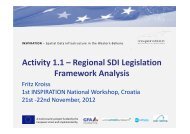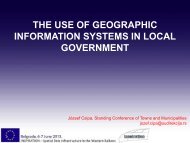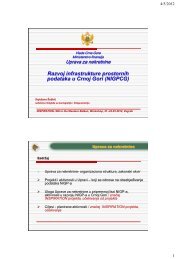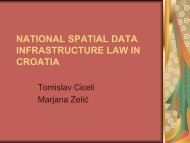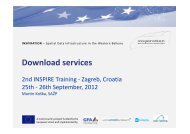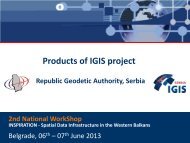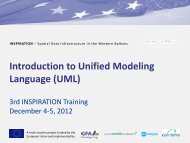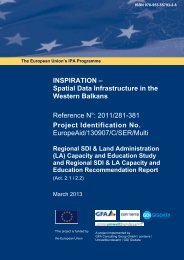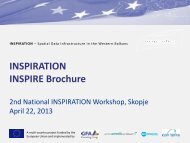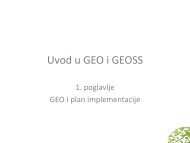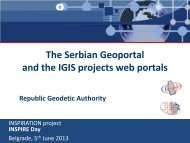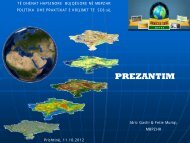MOVE - Moderation and Visualization for Group ... - INSPIRATION
MOVE - Moderation and Visualization for Group ... - INSPIRATION
MOVE - Moderation and Visualization for Group ... - INSPIRATION
You also want an ePaper? Increase the reach of your titles
YUMPU automatically turns print PDFs into web optimized ePapers that Google loves.
In a nutshell, the moderation methods depart<br />
from a trust in people’s intellectual <strong>and</strong> creative<br />
potentials. Hence, the <strong>MOVE</strong> processes tend to<br />
turn recipients - who passively take in bits of<br />
‘wisdom’ provided by a master - into participants<br />
who share their experiences with others in an<br />
active learning process. This, of course, will not<br />
happen by itself. Instead, it needs a skilled<br />
moderator <strong>and</strong> a set of social communication<br />
<strong>and</strong> managerial competences that can be learned<br />
<strong>and</strong> acquired.<br />
The working definition of competence, here, is<br />
the capacity to adapt, apply, mix, <strong>and</strong> develop the<br />
moderation methods <strong>and</strong> instruments explained<br />
later on in this publication. In the Latin origin,<br />
32<br />
competentia qualifies a person who „meets <strong>and</strong><br />
balances requirements“ <strong>and</strong> assumes responsibility.<br />
In <strong>MOVE</strong>:<br />
■ Interaction Interaction competence<br />
competence competence is the qualification<br />
to organize <strong>and</strong> regulate learning <strong>and</strong> working<br />
processes in an atmosphere of trust, respect,<br />
<strong>and</strong> shared meaning among participants,<br />
moderators, <strong>and</strong> resource persons. The<br />
competence ensures focused work results<br />
<strong>and</strong>, in turn, creates effective communication<br />
<strong>and</strong> problem solutions.<br />
■ <strong>Visualization</strong> isualization competence<br />
competence competence refers to the<br />
ability to use <strong>and</strong> arrange a variety of<br />
instruments <strong>for</strong> visual aids, presentations <strong>and</strong><br />
dialogues which both, support effective<br />
communication <strong>and</strong> participation, <strong>and</strong> serve<br />
as an external memory of topics elaborated on<br />
<strong>and</strong> results achieved.<br />
■ Participation articipation articipation competence competence embodies the<br />
moderator’s skill to bring out the best in a<br />
group by means of cumulative learning, a<br />
process which all individuals contribute to.<br />
The complexity of problems is met with<br />
diversity in views <strong>and</strong> solutions by mixed<br />
teams of investigators: sectors, disciplines,<br />
outsiders/locals etc. Also, participants should<br />
learn that such experiential potentials can be<br />
enhanced in cooperation with their partners<br />
<strong>and</strong> beneficiaries at work.<br />
■ Dramaturgic Dramaturgic competence competence has a managerial<br />
dimension - „doing things right“ - as far as the<br />
proper organization of an event is concerned:<br />
preparation, implementation, follow-up. More<br />
importantly, it is the art of „arranging the<br />
right things at the right time.“ Like a film<br />
director or a music conductor, a moderator<br />
scripts an event with all the details of an<br />
evolving drama: He or she alternates between<br />
suspense <strong>and</strong> thrill, individuals, groups <strong>and</strong><br />
plenary sessions, experiences <strong>and</strong> cognition.



